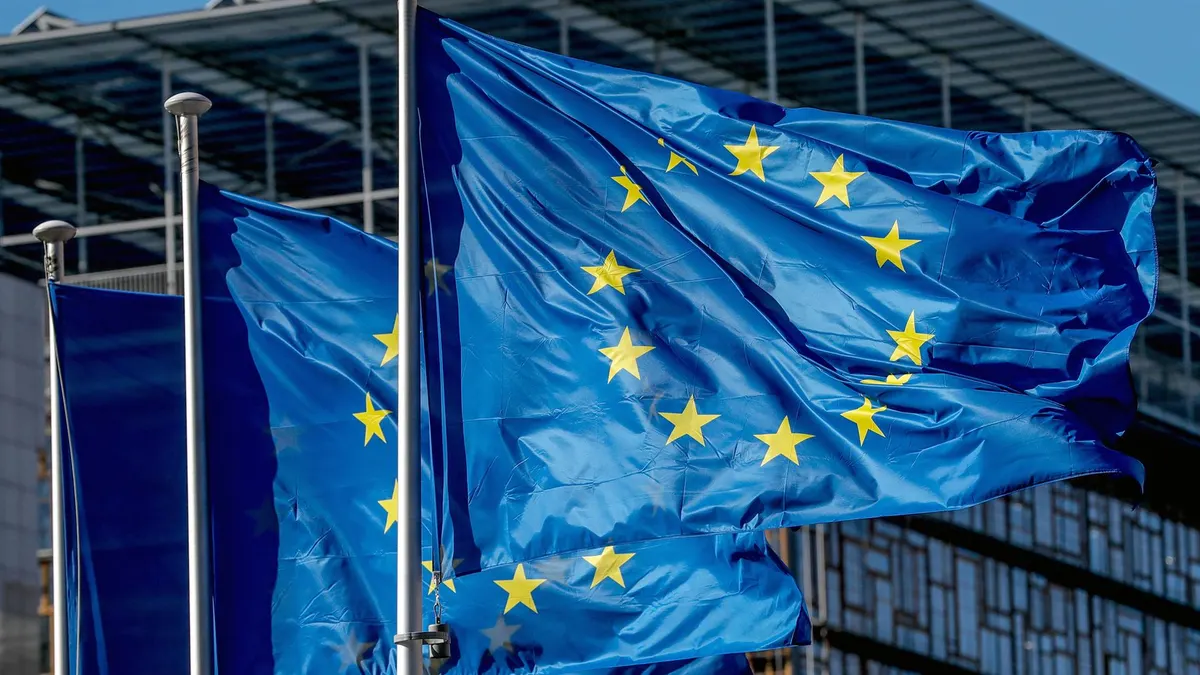
Aside from the political distribution that emerged from the electionsthe European Union (EU) will have to respond to a series of pressing issues that its institutions (Parliament, Commission and Council) will face during the five years of the next legislaturewhich will start walking in mid-July.
The outlines of the European Council’s 2024-2029 strategic agenda, recently leaked, suggest that it will be largely determined due to external challenges, that could also affect the green and digital transitions, which in turn would be focused more from the angle of competitiveness and strategic autonomy.
Precisely, on the economic front, the competitiveness of the Union has become a key issue in a context of commercial fragmentation, massive subsidies granted by the United States and China to their national companies and cgeopolitical and technological competence.
Key will also be strategic positioning of the EU to assert its interests and values before other great geopolitical powers such as the United States, China or Russia. If Republican Donald Trump wins the US presidential election in November, the Union could find itself isolated, for example, when it comes to supporting Ukraine or organizing its own security.
Geopolitics
The EU will maintain the challenge of being a relevant actor in the next legislature on the geopolitical level while two wars are taking place in its vicinity: in Ukraine and Gaza. The need for unanimity to make decisions in the field of the common security and defense policy will continue to be the main obstacle to progress in this field, with countries like Hungary systematically distancing themselves from joint positions.
Continue military support to Ukraine and strengthen the community defense industry It will be one of the challenges despite the common feeling that it is necessary for Europe to prepare for increasingly pressing threats to its security, and countries will have to solve the question of how to finance these ambitions.
On a commercial level, the association agreement with Mercosur (Argentina, Brazil, Uruguay and Paraguay) continues as a pending issue after having almost closed in 2023, while tension with China continues for their unfair practices.
Economy
On the economic level it will be a priority objective boost competitiveness in the face of the increasingly aggressive industrial policies of China and the United States, and to this end the Twenty-seven are committed to increasing private financing at a time when public coffers have little room for maneuver and new needs to finance, such as the reinforcement of the defense.
One of the urgent tasks will be to advance the integration of European capital markets after a decade of little progress, with measures to improve supervision, harmonize national insolvency rules, revive securitization or create common financial products to encourage savers to invest and give more financing options for companies so that they do not flee to the United States.
The European Commission that is formed after the elections must also begin to apply the new deficit and debt control ruleswhich give more room to negotiate fiscal adjustment paths with the States, and present in 2025 the proposal for the next multiannual financial framework 2028-2034, which must be negotiated this legislature.
Migration
Migration has been one of the most toxic and divisive issues of the last decade in the Union and has been seen again during the electoral campaign, in which the issue has been used by the more conservative parties in some Member States.
There is a risk that the speech hardens against migrants and intensify requests to tighten controls, expel irregulars and reinforce security at the borders, despite the migration and asylum pact that the Twenty-seven recently achieved and that now has to be implemented.
Artificial intelligence
The implementation of the laws of artificial intelligence and the two services and digital marketsgreat milestones of this legislature, are also emerging as milestones for the one that begins.
Farmers protests
The next European Commission will have to continue giving response to the claims raised by farmers in the protests of recent months.
So far, Brussels has focused on making the environmental requirements of agricultural policy more flexible, but has already proposed initiatives to improve the position of farmers in the food supply chain, still pending development. And the prices they receive for their products have been one of the aspects that has brought the primary sector to the streets.
Source: Lasexta
Ricardo is a renowned author and journalist, known for his exceptional writing on top-news stories. He currently works as a writer at the 247 News Agency, where he is known for his ability to deliver breaking news and insightful analysis on the most pressing issues of the day.












